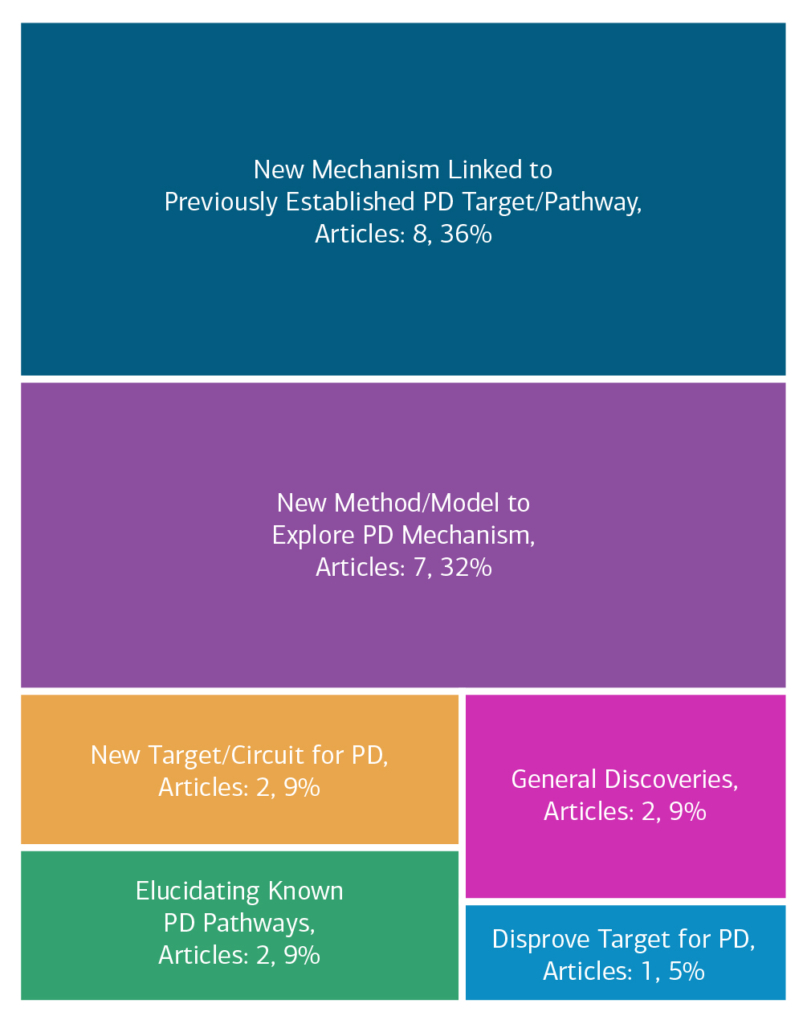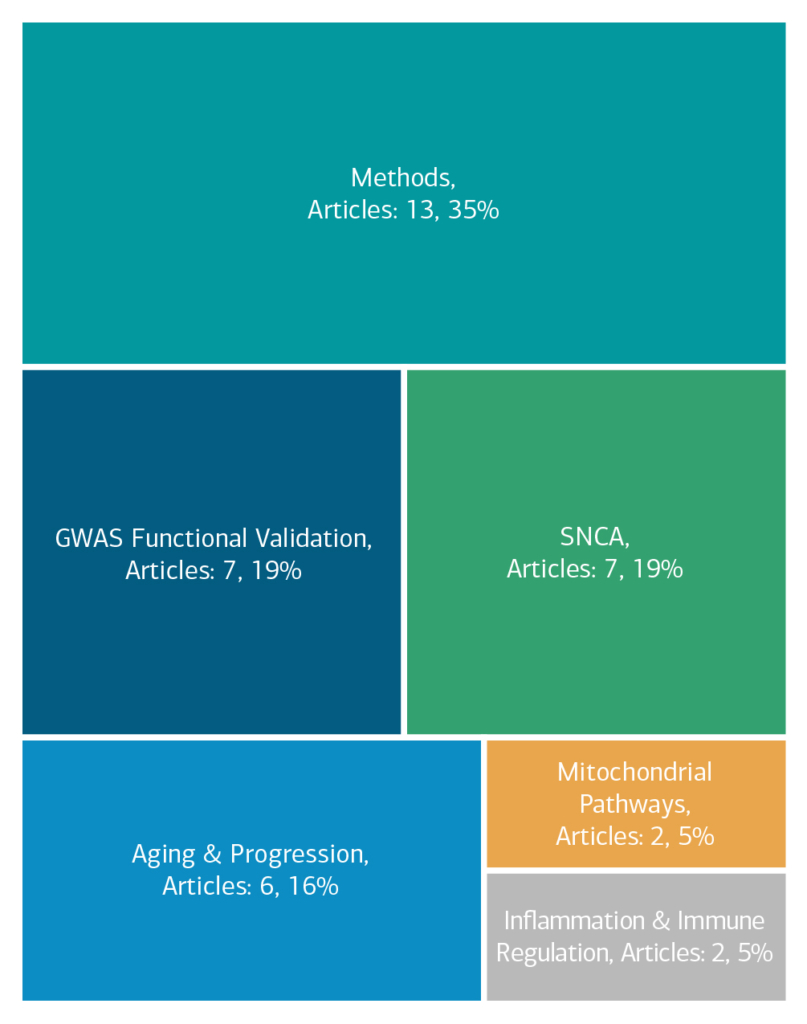PD Functional Genomics | 2020
Mapping the PD Brain: Oligomer-driven Functional Genomics
Study Rationale: To determine the molecular and cellular process that lead to PD, a powerful approach is to single out and study the cells where the disease originates. To achieve this goal, Team Wood uses alpha-synuclein oligomers as a cellular biomarker to identify the right cells. The team will then apply state-of-the-art genomic and genetic analyses to identify genes and proteins that form the disease pathways. Team Wood can then determine the difference between cause and effect by using human cell models derived from induced pluripotent stem cells.
Hypothesis: Team Wood hypothesizes that alpha-synuclein oligomers can be used as cellular biomarkers to identify the specific cells where the disease processes begin, thus making their targeted study possible.
Study Design: By detecting the presence of alpha-synuclein oligomers, Team Wood will identify neuronal and non-neuronal cells in the human brain at different stages of disease, which the team will then study using state of the art single cell genomic and transcriptomic methods. This will allow the team to build a comprehensive and detailed picture of the genes and molecular processes that underlie the disease, which the team will then prioritize using network theory and their knowledge of the current and emerging genetic factors. Using a human model system (iPSC), Team Wood will be able to distinguish cause and effect and deliver new targets for therapeutics, diagnostics, and biomarkers of disease.
Impact on Diagnosis/Treatment of Parkinson’s Disease: This interdisciplinary program, combining physical chemistry, computational modeling, genetics, and neurobiology, will allow researchers to much more fully understand the reasons behind why some cells succumb and others resist the pathological processes. Team Wood findings will offer opportunities for accurate markers of disease status, progression, and validated targets for biopharma to develop novel therapies.
Leadership
Project Outcomes
Team Wood's project addresses the fundamental mechanisms underlying oligomerization of alpha-synuclein and the impact of genetic risk factors in these processes by harnessing single cell transcriptomics and genomics to delineate molecular pathways to disease. View Team Outcomes.
Team Outputs
Click the following icons to learn more about the team’s outputs:
Overall Contributions
Here is an overview of how this team’s article findings have contributed to the PD field as of May 2025. There are two different categorizations of these contributions – one by impact to the PD community and a second by scientific category.
Impact

Category

Featured Output
Below is an example of a research output from the team that contributes to the ASAP mission of accelerating discoveries for PD.
Protein aggregation and calcium dysregulation are hallmarks of familial Parkinson’s disease in midbrain dropaminergic neurons
In this study, researchers used human induced pluripotent stem cells (hiPSCs) to investigate the early events triggered by SNCA mutations. Team Wood developed a protocol to generate midbrain dopaminergic neurons that closely resemble those affected in PD. The aggregates in these cells persisted and progressed, leading to the accumulation of phosphorylated α-synuclein aggregates. Early in the differentiation process, the SNCA-mutant neurons also exhibited impaired calcium signaling and mitochondrial dysfunction. As the neurons matured, they experienced oxidative stress, lysosomal swelling, increased autophagy, abnormal excitability, altered neuronal activity, and cell death. This research provides valuable insights into the disease mechanisms of PD and emphasizes that the formation of intraneuronal oligomers is one of the earliest critical events driving the disease in human neurons rather than a late-stage characteristic.
Team Accolades
Members of the team have been recognized for their contributions.
- Open Science Champions: Minee Choi, Sonia Ghandi, Regina Reynolds, Mina Ryten, Karishma D’Sa, Aaron Wagen
- Network Spotlights: Gurvir Virdi, Catherine Storm, Emil Gustavsson, Saadia Rahman, Zane Jaunmuktane, Melissa Grant-Peters, Aine Fairbrother-Browne
- Awards
- 2023 Collaborative Meeting: Melissa Grant-Peters (First Place Poster Winner in PD Functional Genomics; San Diego)
Other Team Activities
- Working Groups: Single Cell Multi(Omics) – Mina Ryten (Chair), Zane Jaunmuktane (Subgroup Lead)
- Interest Groups:
- Sequencing/Omics – Mina Ryten (Co-Chair)
- SNCA – Sonia Gandhi (Chair)
- Protocol Particulars Interview: Free-floating immunohistochemistry with Jonathan Breiter, MSc
In the News
- Parkinson’s disease research at UCL gets £19 million boost (University College London, press release, September 17, 2020)












